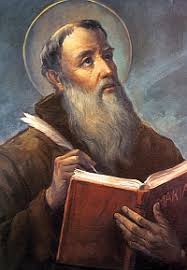HOMILY WEEK 16 02 – Year II
Doing the Will of God:
Optional Memorial of St. Lawrence of Brindisi
(Micah 7:14-20; Ps 85; Mt 12:46-50)
***********************************************
“For whoever does the will of my Father in heaven is my brother and sister and mother.”
The message for us today could not be clearer: to be close to Jesus, we must to the will of God.
The readings providing this message also give us a portrait of just who that Father of Jesus in heaven is, and how we can do God’s will.
Micah, in the first reading, paints a picture of God who is forgiveness and mercy – pardoning iniquity, passing over our transgressions, not holding onto anger, delighting in showing mercy, full of compassion, treading our iniquities underfoot, casting all our sins into the depths of the sea, all out of unswerving loyalty and faithfulness to God established with our ancestors in the faith, Abraham and Jacob.
Psalm 85 fleshes out this portrait of our God even more as one who not only forgives our sins, but also heals us, restores our fortunes, and grants us God’s salvation. This fits in with a Father who would send his Son Jesus among us with a two-fold mission – to redeem and to sanctify, to forgive and to heal, to not only take away our sins, but also heal us of our sinfulness, that which makes us sin (our painful emotions and negative attitudes). This is all Good News!
Pondering these two readings describing the nature of the Father of Jesus Christ, one can glimpse why Pope Francis has made mercy the defining quality of God for all of his pontificate. I am sure what also influenced his insistence on that quality of God is the actions of the loving Father in the story in Luke of the two lost sons – one prodigal, and the elder self-righteous. We are invited, as friends and disciples of Jesus, to do what pleases him the most – the will of his Father, in imitation of Mary, his Mother.
An evangelical student once asked me why we Catholics “worshipped” Mary when Jesus pushed her away when she wanted to see him, as in today’s gospel. My response was that this student did not understand the scriptures. Jesus wasn’t pushing his mother away at all. Just the opposite – he was honoring her by using her as an example. Basically, Jesus was saying that as close as he is to his mother physically, as she had given birth to him, we can be even closer to him spiritually, if we do the will of his Father.
What is the will of God? In the Old Testament, it would be keeping the Decalogue, the Ten Commandments, as well as the prescription of Micah himself, who advises us to act justly, love tenderly and walk humbly with our God (Micah ??).
In the New Testament, it would be living out the Beatitudes or eight ways of being Jesus gave us, as well as his commandments I like to summarize as: loving God with our whole being; loving others as we love ourselves, loving one another as he has loved us (a sacrificial love), and above all, loving our enemies by trying to forgive them from the heart.
Given what Jesus said of Mary of Bethany sitting at his feet when Martha, her sister, complained about being left alone to do all the work, I would dare to say doing the will of the Father would include spending time with Jesus his Son in contemplative prayer, as did Mary, who according to Jesus, chose the better part.

St Lawrence of Brindisi
Today the church invites us to honor St. Lawrence of Brindisi for the way he did the will of the Father in his lifetime. Born in 1559 in the Kingdom of Naples, Caesare de Rossi was educated first by the Conventual Friars and then in Venice at the College of St. Mark. At the age of 16, he entered the Capuchin Franciscan Order in Verona and took the name of Lawrence. Fluent in several languages, including Hebrew, and thoroughly versed in the Bible, Lawrence worked as a diplomat for the secular powers of Europe and as a missionary. In 1602, he became minister general of his order but refused re-election in 1605, preferring to preaching to administration. Those who examined his writings in the process of his beatification became convinced Lawrence deserved to be named a Doctor of the Church. He was canonized in 1881 and named a Doctor of the Church in 1959.
The Eucharist is a pilgrim meal based on the Passover, and our daily manna. May our celebration strengthen our faith in Jesus and empower us to do the will of the Father, as did St. Lawrence of Brindisi.



